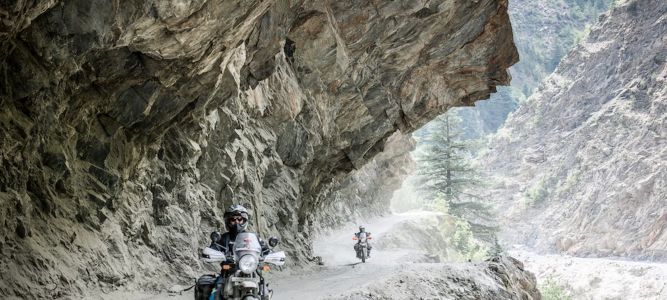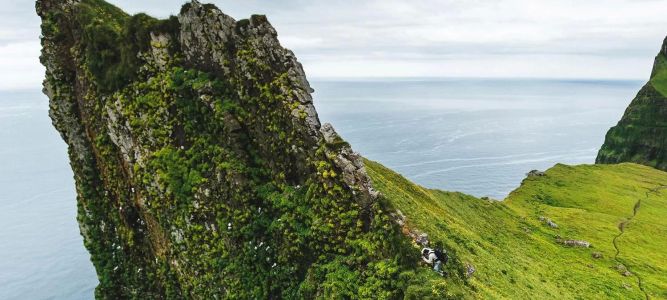1. Overview of the Rocky Mountains
The Rocky Mountains, stretching over 3,000 miles from Canada to New Mexico, offer some of the most awe-inspiring landscapes in North America. Known for their towering peaks, alpine lakes, and diverse wildlife, the Rockies are a hiker’s paradise. Whether you're a seasoned mountaineer or a casual hiker, the Rocky Mountains offer trails for all levels, from easy walks to challenging multi-day treks.
Part of the appeal of the Rocky Mountains lies in their dramatic beauty—rugged cliffs, verdant valleys, and glacial-carved lakes, combined with a rich variety of flora and fauna. Hiking here means not only exploring stunning vistas but also connecting with the natural history of this iconic region.
2. Top Hiking Trails in the Rocky Mountains
The Rocky Mountains are home to some of the most scenic and challenging hiking trails in the world. Here are some of the best hiking trails in the Rocky Mountains that offer stunning views and unforgettable experiences:
- Bear Lake Loop (Colorado): This easy, family-friendly trail offers spectacular views of Bear Lake and the surrounding peaks. The 0.6-mile loop is perfect for beginners or those looking for a relaxed hike.
- Longs Peak (Colorado): For experienced hikers, Longs Peak offers a challenging 14,259-foot summit. The trail is strenuous and involves rock scrambling, but the panoramic views from the summit make the effort worthwhile.
- Emerald Lake Trail (Colorado): A moderate 3.6-mile round trip hike that takes you to the stunning Emerald Lake, surrounded by snow-capped peaks. It’s one of the most popular hikes in the Rocky Mountain National Park.
- Skyline Trail (Wyoming): This advanced trail in Grand Teton National Park offers breathtaking views of the Tetons. At 6.3 miles, it involves steep ascents and stunning alpine meadows, perfect for experienced hikers looking for a challenge.
- Lake O'Hara (Canada): For a unique experience, the trails around Lake O'Hara in Canada offer an extraordinary mix of lush forests and mountain landscapes, including the famous Alpine Circuit.
These trails represent a range of hiking experiences in the Rocky Mountains, from easy day hikes to more difficult challenges. Whether you’re looking for panoramic views, a chance to spot wildlife, or a peaceful retreat into nature, these trails offer something for everyone.
3. Essential Hiking Tips for the Rocky Mountains
Hiking in the Rocky Mountains can be an exhilarating experience, but it requires preparation and knowledge to ensure your safety and enjoyment. Here are some essential hiking tips:
- Acclimate to the Altitude: The high altitudes of the Rockies can cause altitude sickness. Take time to acclimate before tackling difficult trails, especially those that climb above 10,000 feet.
- Pack for All Weather: Weather in the mountains can change rapidly, so be prepared for everything from sunshine to snow. Dress in layers, and always bring rain gear, sunscreen, and plenty of water.
- Leave No Trace: The natural beauty of the Rockies is fragile, so follow Leave No Trace principles to help preserve the environment for future generations.
- Bring Proper Footwear: Good hiking boots are essential for navigating rocky terrain and preventing blisters. Make sure your footwear is broken in before hitting the trails.
- Stay on Marked Trails: To avoid getting lost and to minimize your impact on the environment, always stick to marked trails. If you’re venturing off-trail, ensure you have good navigation skills or a guide.
By following these tips, you can ensure a safe, enjoyable, and responsible hiking adventure in the Rocky Mountains.
4. Best Time to Visit the Rocky Mountains for Hiking
The best time to visit the Rocky Mountains for hiking largely depends on the experience you’re seeking. Here’s a quick guide to the seasons:
- Summer (June to September): Summer is the peak season for hiking in the Rockies, offering the warmest weather and the best conditions for high-altitude trails. However, it can also be crowded in popular areas like Rocky Mountain National Park.
- Fall (September to November): Fall offers fewer crowds and stunning fall foliage. The cooler weather makes it ideal for hiking, but some high-altitude trails may be closed due to early snowfalls.
- Winter (December to February): While winter hiking in the Rockies is more challenging, it offers the chance to experience the mountains in a quiet, serene way. Snowshoeing and cross-country skiing are popular activities during this time.
- Spring (March to May): Spring offers mild temperatures, but the weather can be unpredictable. Snowmelt can make trails muddy, but the beauty of the blooming wildflowers and the return of wildlife make it worth the visit.
The summer and fall months are generally the best for hiking, but each season offers a unique way to explore this stunning landscape.
5. Why Choose Travelers Odessa for Your Rocky Mountain Hiking Trip
If you're planning a hiking trip to the Rocky Mountains, choosing the right tour operator is essential for making the most of your adventure. At Travelers Odessa, we specialize in guided hiking tours that ensure you explore the Rocky Mountains safely and responsibly. Our expert guides know the trails, the best times to visit, and how to help you make the most of your trip, whether you're a first-time hiker or an experienced mountaineer.
With customized itineraries, insider knowledge, and a focus on sustainable travel, Travelers Odessa is your perfect partner for discovering the beauty and challenge of hiking in the Rockies.
Ready for an unforgettable hiking adventure? Click here to learn more and book your next Rocky Mountain hiking tour with Travelers Odessa.





